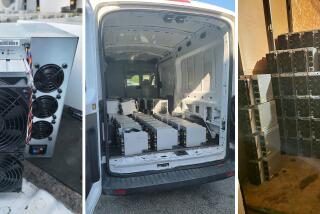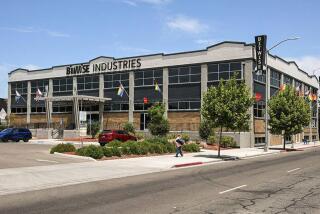3 Accused of Plot to Pass Supercomputer Designs
- Share via
SAN JOSE — An alleged plot to sell supercomputer technology with military applications to the Soviet Union for $4 million was broken up Thursday with three arrests and the recovery of computer designs, federal officials said.
“This is the most significant case U.S. Customs has worked on,” said Rollin Klink, special agent in charge for the U.S. Customs Service. “It makes us feel good we stopped this stuff from leaving the United States. It would have severely damaged our military.”
The designs allegedly stolen from Sunnyvale-based Saxpy Computer Corp. could be used to make one of the most powerful supercomputers in the world, capable of 1 billion computations per second, company officials said.
Ivan Batinic, 29, of Fremont, a former Saxpy engineer, his brother, Stevan, and Kevin E. Anderson, 36, a software designer also from Fremont, were arrested on charges of plotting to illegally export the stolen computer technology. They were arraigned Thursday before a federal magistrate.
The three are believed to have conspired with Charles McVey, 57, a former fugitive who was indicted in 1984 for export violations and is currently being held in a Vancouver jail.
Saxpy spokesman Sandy Towle said Batinic illegally copied the operating system of the computer, which the 2-year-old company sells for $896,000 to $1.9 million, depending on its configuration.
Batinic also allegedly stole tapes, floppy disks and operating manuals, which the FBI said were found in a storage locker rented by Anderson in Fremont.
FBI spokesman Charles Latting said the technology was not classified, although it is illegal to export. The computer has many non-military applications for industry.
The investigation began in August, when a search of Anderson and Ivan Batinic as they returned to the United States from Vancouver, Canada, found $10,000 in $100 bills that were traced to McVey. Federal officials said Saxpy cooperated fully with the investigation.
More to Read
Sign up for Essential California
The most important California stories and recommendations in your inbox every morning.
You may occasionally receive promotional content from the Los Angeles Times.












